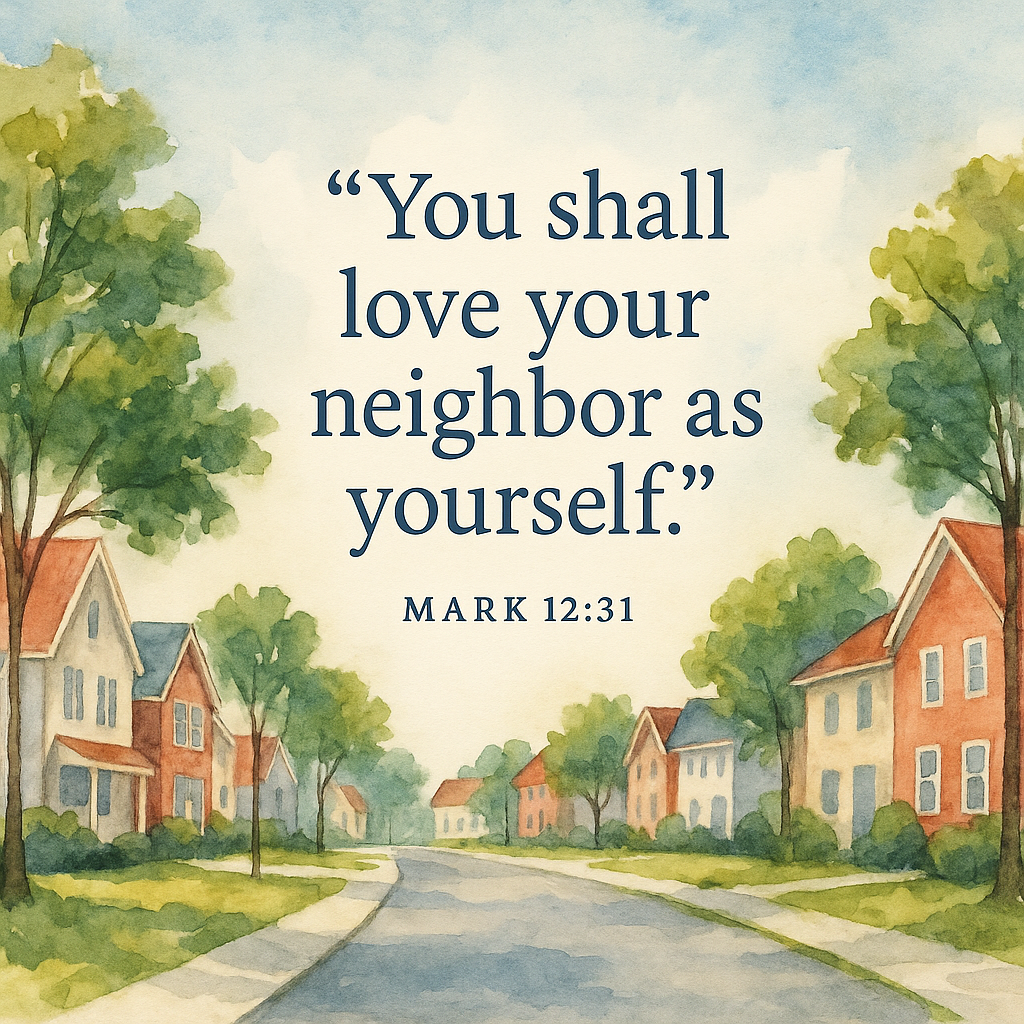The Common Good and the Politics of Neighborliness
“You shall love your neighbor as yourself.” – Mark 12:31
By +Brian Ernest Brown
There are certain teachings of Jesus that are so familiar, so oft-quoted, that we forget how radical they really are. “You shall love your neighbor as yourself” is one of them. It has become a decorative phrase on Christian coffee mugs, a slogan recited by children in Sunday school. But in its original context, it was not quaint. It was confrontational. It was a demand laid upon a divided society, a society fractured by tribalism, empire, poverty, and suspicion, not so different from our own.
Today, we speak often of the “common good,” yet we rarely pause to ask what it requires of us. Too often, our politics has become a competition of self-interest, a defense of our comforts, our grievances, our preferred narratives. The idea that my well-being might be inseparably linked to my neighbor’s has become almost unthinkable in a world that worships autonomy.
But Jesus did not ask us to tolerate our neighbors, or to avoid harming them, or to leave them alone. He asked us to love them, and not abstractly, not philosophically, but personally, concretely, and sacrificially.
Love your neighbor as yourself.
-Not less.
-Not if convenient.
-Not if they agree with your politics.
-Not if they live like you, look like you, vote like you, worship like you.
As yourself.
That command, if taken seriously, would dismantle the entire machinery of our modern political cruelty. It would end the impulse to punish the poor for being poor. It would silence the voices calling for drug tests before food aid, or moral purity before compassion. It would challenge those who demand “law and order” but only for people outside their tribe. It would remind us that public life is not about winning, it is about belonging.
The politics of neighborliness begins with the recognition that my neighbor’s dignity is as real as mine. Their hunger is as urgent as mine. Their grief is as heavy as mine. Their children deserve safety and opportunity just as much as my own.
If we lived this way, our debates about health care, housing, education, and justice would look entirely different. Instead of asking, “What does this cost me?” we would ask, “What does this give to us?” Instead of asking, “Who deserves help?” we would ask, “Who needs it most?” Instead of insisting on our rights, we would consider our responsibilities.
And this is the heart of the matter: The common good is not a political slogan. It is a spiritual posture.
It is a way of seeing the world that refuses to separate the flourishing of the self from the flourishing of the community.
In a time when political movements claim Christianity while treating neighbors as enemies, strangers as threats, and the vulnerable as burdens, we must return to the simplicity and severity of Jesus’s command. The love of neighbor is not sentiment, it is solidarity. It is the recognition that the image of God looks back at us from every human face, including those our politics has taught us to fear or disdain.
To be a people of the common good is to confess that personal holiness cannot be separated from public compassion. It is to believe that faith without neighbor-love is empty ritual. It is to live with a conscience that refuses to be anesthetized by ideology.
The Via Media, the middle way, is the path where conscience and compassion meet. It invites us to reject the extremes of indifference on one side and dehumanization on the other, choosing instead the steady work of tending the common good. It is slower, harder, less glamorous than partisan rage but it is the only road that leads to peace.
Loving our neighbor as ourselves is not a suggestion. It is the measure of our discipleship, the foundation of a just society, and the antidote to the politics of cruelty that threatens to consume us.
May we have the courage to live it for the sake of our neighbors, and for the sake of a world still aching to be healed.
Love,
+Brian


